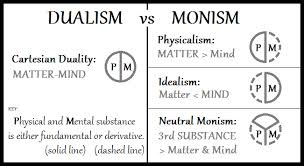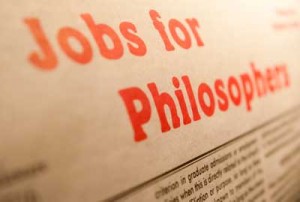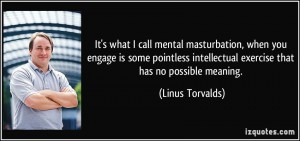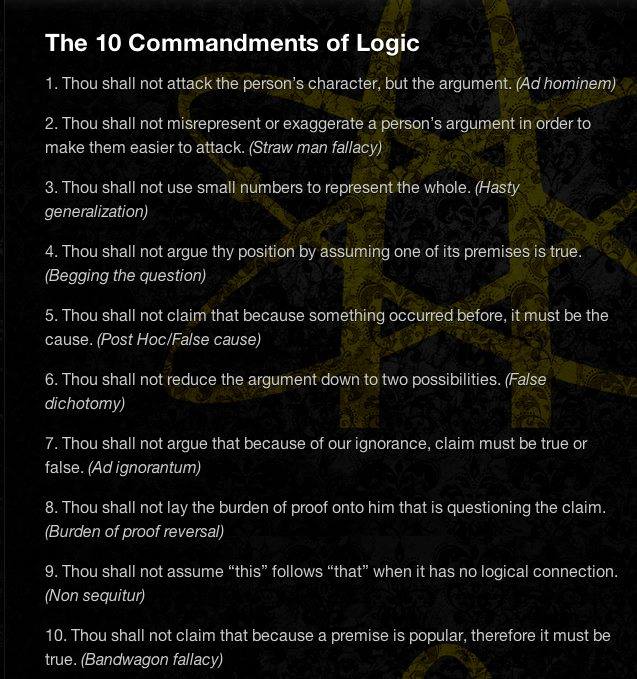 My novel of the week is Rebecca Goldstein’s The Mind-Body Problem. I first encountered Goldstein over the past few weeks when I plowed through her most recent work, Plato at the Googleplex, a creative and insightful insertion of Plato into various twenty-first century venues in an attempt—successful—to establish that the timeless questions of philosophy remain as relevant today as they were in the days of Socrates. The book came highly recommended from the President of my college who also is a fine philosopher—I’m grateful for the heads up. The Mind-Body Problem is Goldstein’s earliest work of fiction (from thirty years ago); something tells me that there’s a lot of autobiography in it. Renee Feuer is a brilliant graduate student in philosophy at Princeton (where Goldstein earned her PhD in philosophy) who at a party meets, then subsequently marries, Noam Himmel, a world-renowned mathematician who made his name in the field at the age of twelve. Academic high jinx ensue of the sort that can only be fully described by an academic and probably only fully understood and appreciated by other academics.
My novel of the week is Rebecca Goldstein’s The Mind-Body Problem. I first encountered Goldstein over the past few weeks when I plowed through her most recent work, Plato at the Googleplex, a creative and insightful insertion of Plato into various twenty-first century venues in an attempt—successful—to establish that the timeless questions of philosophy remain as relevant today as they were in the days of Socrates. The book came highly recommended from the President of my college who also is a fine philosopher—I’m grateful for the heads up. The Mind-Body Problem is Goldstein’s earliest work of fiction (from thirty years ago); something tells me that there’s a lot of autobiography in it. Renee Feuer is a brilliant graduate student in philosophy at Princeton (where Goldstein earned her PhD in philosophy) who at a party meets, then subsequently marries, Noam Himmel, a world-renowned mathematician who made his name in the field at the age of twelve. Academic high jinx ensue of the sort that can only be fully described by an academic and probably only fully understood and appreciated by other academics.  I’m enjoying the story immensely, but wonder to what extent my enjoyment might be that of an insider.
I’m enjoying the story immensely, but wonder to what extent my enjoyment might be that of an insider.
Chapter Five (“Reality”) might be a test case. Packed into thirty-five pages are a spirited debate between Renee’s best friend Ava (a physicist) and Noam about the nature of logic and what is real, a fine overview of the mind-body problem and what’s at stake in its various proposed solutions provided by Renee, a depressingly accurate description of what it is like to try to find a job at the annual  American Philosophical Association Eastern Division convention, a neat schematic fitting Descartes in relation to his philosophical heirs Spinoza and Leibniz, a brief foray into the mind-numbing world of linguistic analysis and logical positivism, and a quick overview of Noam’s favorite philosophical argument: “Himmel’s Proof for the Nonidentity of a Person with His Body.” “Reality” touched base with areas in philosophy that I used to be smack in the middle of but have strayed away from over the years. But I loved it—it felt like I was back in some of my graduate seminars at Marquette and enjoyed remembering some of the philosophical issues—particularly Descartes and the mind-body problem—that sucked me into the philosophical vortex so many years ago. A great way to spend an hour waiting for my delayed plane to Toronto at Logan Airport.
American Philosophical Association Eastern Division convention, a neat schematic fitting Descartes in relation to his philosophical heirs Spinoza and Leibniz, a brief foray into the mind-numbing world of linguistic analysis and logical positivism, and a quick overview of Noam’s favorite philosophical argument: “Himmel’s Proof for the Nonidentity of a Person with His Body.” “Reality” touched base with areas in philosophy that I used to be smack in the middle of but have strayed away from over the years. But I loved it—it felt like I was back in some of my graduate seminars at Marquette and enjoyed remembering some of the philosophical issues—particularly Descartes and the mind-body problem—that sucked me into the philosophical vortex so many years ago. A great way to spend an hour waiting for my delayed plane to Toronto at Logan Airport.
I suspect, however, that my enjoyment of this novel would not be shared by some, perhaps most, of the literate novel-reading public. Many would find “Reality” mind-numbingly obscure and insufferably boring. I know this because my lovely wife is one of these “many.” As shocking as it may seem, not everyone gets pumped up by philosophical puzzles and arguments about whether idealism, materialism, or dualism provides the most reasonable approach to the mind-body problem. I have been teaching philosophy for twenty-five years and take great pride in my ability to seduce even the most recalcitrant philosophy-phobes into my world. But not everyone has what I call the “philosophy gene.” Some people just don’t get the point—or they do get the point and find it to be about as interesting and stimulating as watching paint dry. My suspicion is that most people are inclined genetically either toward or against academic philosophy. Chapter Five of The Mind-Body Problem would be a good test for the philosophy gene. If the neophyte makes it through the chapter intrigued and fascinated (even if she doesn’t “get” all of it), she’s a philosophy major in the making. If she doesn’t make it past the first couple of pages before glazing over, she isn’t.
have been teaching philosophy for twenty-five years and take great pride in my ability to seduce even the most recalcitrant philosophy-phobes into my world. But not everyone has what I call the “philosophy gene.” Some people just don’t get the point—or they do get the point and find it to be about as interesting and stimulating as watching paint dry. My suspicion is that most people are inclined genetically either toward or against academic philosophy. Chapter Five of The Mind-Body Problem would be a good test for the philosophy gene. If the neophyte makes it through the chapter intrigued and fascinated (even if she doesn’t “get” all of it), she’s a philosophy major in the making. If she doesn’t make it past the first couple of pages before glazing over, she isn’t.
I ran into this sort of thing the other day in the midst of a seemingly benign Facebook discussion. An acquaintance of an acquaintance contributed the following: I have always said that the academic discipline of philosophy is essentially mental masturbation. That makes philosophy majors a bunch of wankers.  Well that was not very nice. What follows is a verbatim transcription of my back-and-forth with this guy (note, please, that I care more about spelling and sentence structure in my Facebook communication than he does).
Well that was not very nice. What follows is a verbatim transcription of my back-and-forth with this guy (note, please, that I care more about spelling and sentence structure in my Facebook communication than he does).
- Me: Really, XXXXX? Here’s what philosophy academics do: http://www.patheos.com/blogs/freelancechristianity/are-philosophers…/ [Notice how deftly I snuck in a plug for my blog]
- Him: none of that really has anything to do with the price of potatoes. I have in my experience found philosphy majors and grad students to be insufferable bullshit artists incapable of making a concise point or acknowledging practical realities.
 The products of the discipline stand as proof that otherwise intelligent people can think themselves into stupidity.
The products of the discipline stand as proof that otherwise intelligent people can think themselves into stupidity.
- Me: XXXXX, what do you know about the academic discipline of philosophy?
- Him: Well lets see I was forced to suffer through a number of courses in the discipline as part of my curriculum at Tulane, along with a number of related courses such as political theory (gag!) and international relations theory (gag! vomit!) literary theory (gagvomit was that a little blood I just puked up?)
- Me: None of the last three courses you listed are “philosophy” in the academic sense. Sorry that you had a bad experience as a student–it hardly qualifies you, however, to make a blanket statement such as “the academic discipline of philosophy is essentially mental masturbation.” You’ll need to be part of the discipline for twenty-five years teaching and writing as I have before you earn the right to that opinion.
- Him: no I took some philosophy courses as well. not teaching it for 25 years doesnt make it any less clear that it is mental masturbation. in fact I would wager that I see it far more clearly
- Me: An impossible wager for you to back up. But I stand corrected under the weight of your vast experience and insight. Except that your point was made on the basis of anecdotal evidence–something that a return to Logic 101 would perhaps cure. [According to the handy “Ten Commandments of Logic,” so far the guy has violated commandments 1, 3, 6 and 9].

- Him: no, the anecdotal evidence just supports the logical conclusion. But as the great philosopher Spock once said: “Logic is the beginning of wisdom, not the end.” although while we’re talking about logic 101 you might want to look up “Appeal to Authority” fallacies
Please note that even though “Appeal to Authority” is considered to be a logical fallacy, it is not included in the “Ten Commandments of Logic.” Furthermore, when the authority cited is me, it is not a fallacy at all. 🙂
But to be honest, my initial and continuing attraction to the strange and wonderful world of philosophy has little to do with logical rigor. Rebecca Goldstein expresses it well. The process of philosophy always reminds me of fireworks. One question is shot up and bursts into a splendorous many. Answers? Forget answers. The spectacle is all in the questions.











